The following is a write-up on how a company lost $62K and ton of time trying to enrich their SEO presence via a SEO agency. Many mistakes and falsehoods provided by the agency can be found here.
https://tinloof.com/blog/the-seo-scam-62000-dollars-later
Like many businesses operating online, we at Tinloof decided to explore SEO to attract more leads.
Seeing the numerous SEO gurus on LinkedIn and Twitter, one might think it’s worth a shot to try this approach, hoping to strike gold when search engines place your website at the top of the results page.
Initially, our focus at Tinloof was on writing technical content. However, this didn’t draw the right audience to generate leads. Instead, it was mostly junior developers learning from our tutorials.
These articles were not written with SEO in mind, but they still ranked high, in some cases even first, like our React Slideshow article.
We decided to seek an agency’s help to rank for “business” terms - you heard that right - specifically those related to web application creation, marketing websites, design, and similar terms.
We selected a few agencies based on their own search engine rankings in their respective areas and picked one, optimistic that we would see impressive results in a few months.
In their proposal, they predicted that we would gradually receive more leads by following their guidance. Although they couldn’t obviously control Google’s algorithm, they were confident that we could achieve the results they suggested based on their experience and past case studies (see graph below).
We trusted them and went ahead.
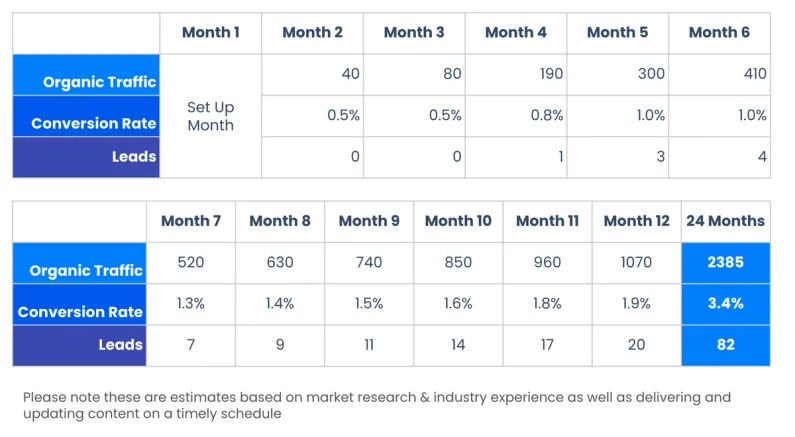
What the SEO agency planned
The SEO agency spent a month developing a so-called “strategy”, essentially a roadmap dictating our sitemap’s structure and the keywords we should target.
We were eager to see the results, but our excitement turned to disappointment when they suggested a complex sitemap with a confusing URL structure.
For instance, instead of having the URL like this:
https://www.tinloof.com/services/frontend-development
They suggested something like this:
https://www.tinloof.com/services/web-development-services/frontend-web-development-company
We weren’t happy with the long and convoluted URLs, but maintaining a positive attitude and trusting the “experts”, we decided to proceed with their recommendations and looked forward to their action plans.
They also introduced keyword clusters, mapped out as follows:
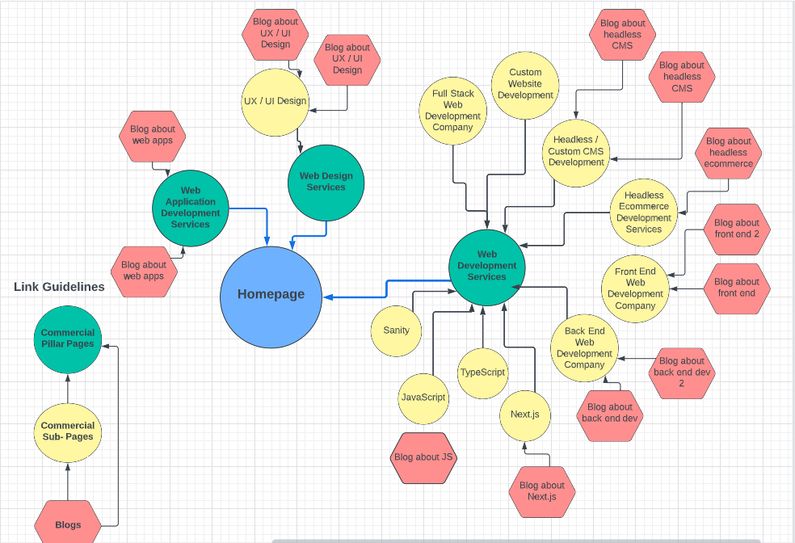
What the SEO agency did
They divided the hours allocated for Tinloof into different types of activities: content creation, digital PR (which we later learned was essentially buying links), and “SEO strategy”.
Content creation
The agency suggested changing our page structure and adding content to help us rank as a web design and development agency.
However, when they tried writing content for us, it was dull, repetitive, error-ridden, and superficial. It was simply unacceptable to have such poor-quality content on our website. A language model like ChatGPT could have done a better job, though it wasn’t released at the time.
Ironically, when ChatGPT was launched, our account manager started questioning their job:
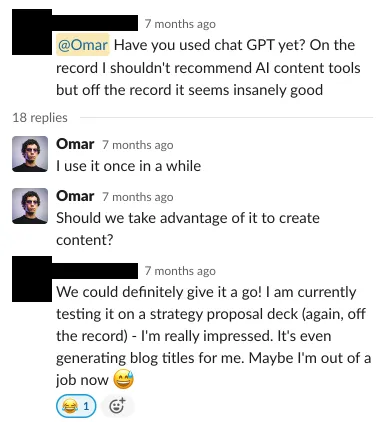
Consider this: you offer a unique service or product and are an expert in your field. It’s unreasonable to expect a general copywriter to effectively handle such specialized topics. We knew they wouldn’t be able to write about the topics we cover at Tinloof, yet they insisted we give it a try.
Considering the agency couldn’t write content for us, we decided to write the content ourselves. The agency gave us content briefs with instructions on page headers, FAQs, keyword volume, and other details.
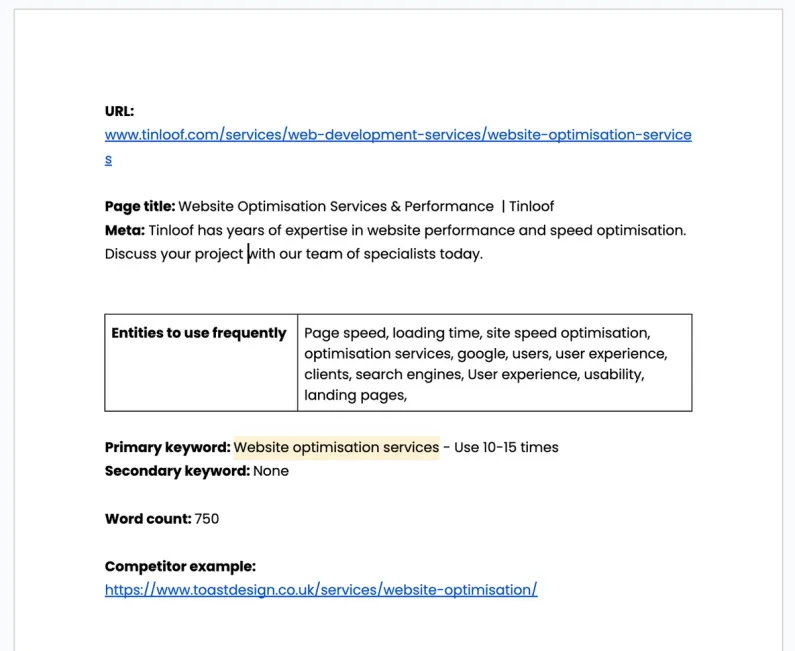
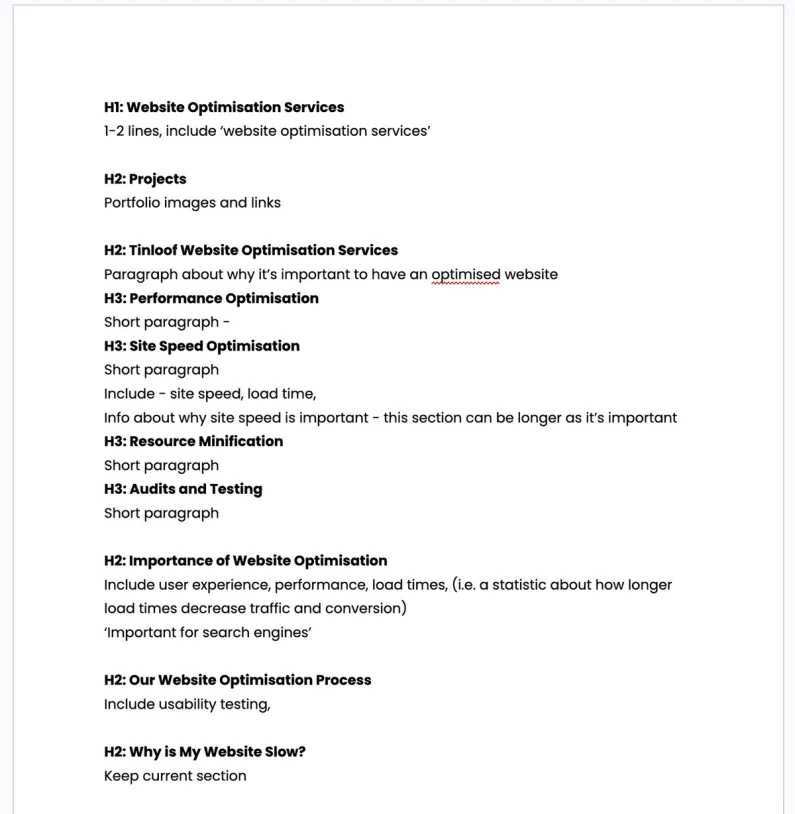
Following these briefs, we created numerous pages and monitored their performance on Ahrefs, hoping they would rise in rank.
They also suggested creating different pages for the same service, but with different wordings, e.g.:
https://www.tinloof.com/services/web-development-services/marketing-website-development
and
https://www.tinloof.com/services/web-development-services/brochure-website-development
Having so many pages with superficial content to maintain made us uncomfortable.
We were sure this approach would negatively impact our user conversion rates and damage our brand image.
-
Our site quickly began to lose its original voice and became extremely difficult to manage.
What’s the use of ranking high with content that doesn’t engage visitors? If they feel like a bot wrote the content, it defeats the purpose.
If this is what it takes to rank on a search engine, then there’s something wrong with the search engine itself.
Digital PR
Digital PR, it turns out, is a fancy term for buying backlinks, a practice not allowed by Google.
The goal of this was to increase our Domain Authority.
Naturally, we wanted to see what we were paying for. We were surprised to find that questionable “business magazines” were linking to us.
These fake magazines looked unprofessional, leading us to question who would read such low-quality content. Yet, when we checked on Ahrefs, these sites had surprisingly high domain authorities.
Something didn’t seem right. It felt like we’d entered the dirty side of the Internet.
It was disheartening to pay for invoices like the one below:
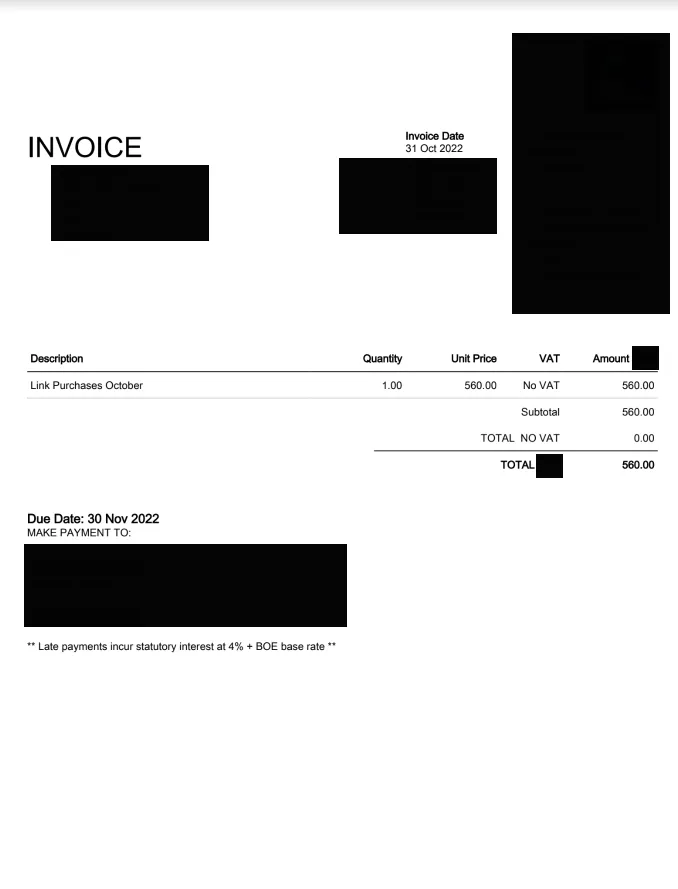
SEO strategy
They provided us with advice on JSON-LD, structured markup, and internal linking strategy.
The last part resulted in our site being overloaded with content, as they tried to cram as many internal links as possible, as shown in the following example:

They also compiled monthly reports that we didn’t need, often containing information we were already aware of, like traffic growth and country-specific data.
We suspect this was a tactic to make their work appear more legitimate.
One could argue their work was legitimate, considering their job was to make us rank on the search engine, regardless of the the medium, which begs the question:
Is the problem with the search engine itself, the agency, or both?
The tipping point
For months, we were hooked on monitoring our keyword progress on Ahrefs. We felt a thrill whenever we unlocked new keywords and disappointment when a page wasn’t indexed by the search engine.
We were sucked into this tracking, our excitement fueled by imagining the potential leads coming our way.
But all of that turned out to be an illusion.
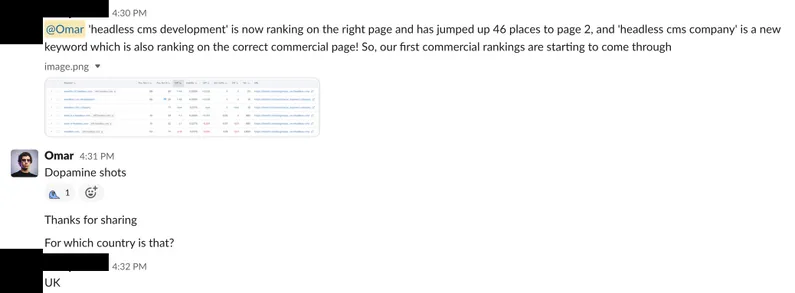
The results (or lack thereof)
Despite all the time and money invested, we didn’t receive any leads from these efforts.
Our frustration increased as our site began to lose its character. We decided it was time to stop damaging ourselves further.
Regrettably, when we informed the agency of our decision, they told us it was too late to cancel without renewing the contract.
So we found ourselves paying for a service that was doing absolutely nothing for us. When we asked what they would do with the time originally allocated to us, now that we no longer wanted to play the SEO game, they responded with generic template responses.
It was a great way to spit on our face.
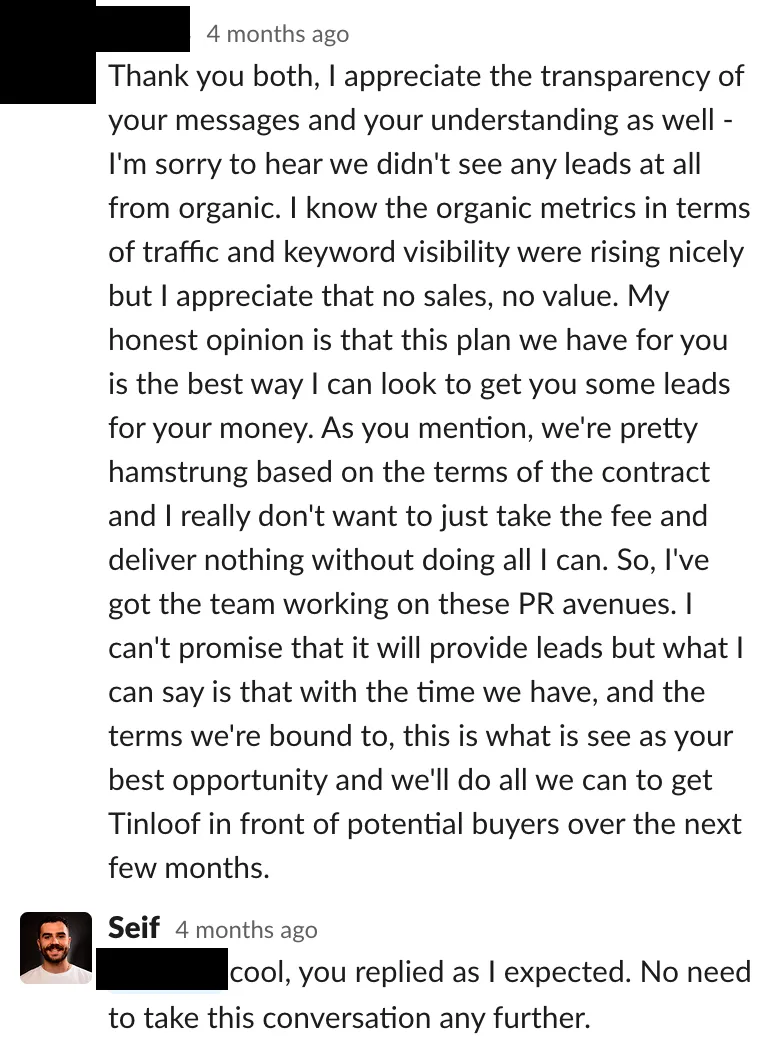

Financial details
If you’re interested in the financial details, here they are:
— We started with a monthly retainer of $4,000.
— In the initial months, we even temporarily doubled the retainer, hoping to see quicker results.
— We also incurred extra costs for “digital PR”.
In total, we paid this agency a precise sum of $61,806.71.
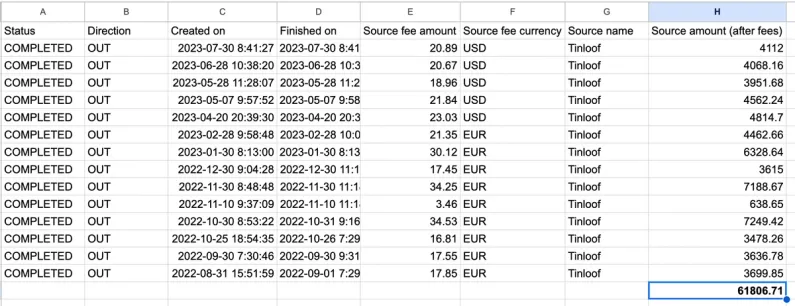
What now?
Our contract with them has concluded, and despite the financial hit, we learned a great deal from the experience. We wanted to share this knowledge with you, so you’ll be better prepared than we were.
We removed all the content from our website that was created with them (which felt quite therapeutic), and now we’re back to focusing on delivering quality content.
Does SEO work?
Interestingly, we still manage to receive leads from some of our well-ranked content. But such content was authentic, written by our team without any SEO guidelines, and not created with the sole intent of achieving high rankings.
At Tinloof, we make sure to follow technical SEO best practices, but we’re beyond the phase of creating content meant solely for bots.
Concluding thoughts
We hope that this circus will eventually come to an end, and search engines will have to either improve their algorithms or people will lean more on solutions like ChatGPT, lessening their reliance on these engines.
In the meantime, many businesses will likely see their money drained by SEO agencies insisting on long-term contracts with the excuse that ranking high takes time.
This article reflects our experience, you may have had a completely different one, and we’d love to hear about it.
As the French saying goes, à bon entendeur!